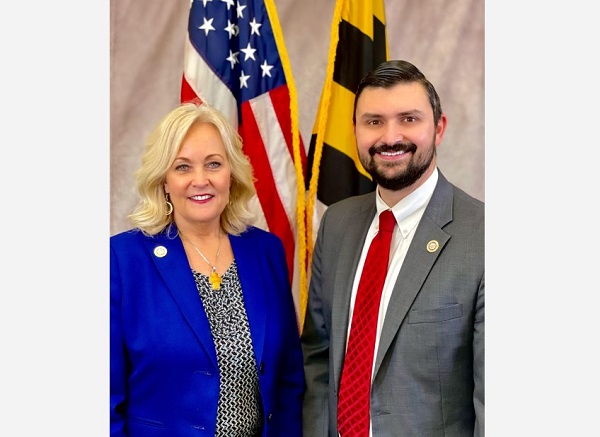The following is an op-ed piece from Delegates Kathy Szeliga and Ryan Nawrocki.
This legislative session in Annapolis we are working on HB985, which would provide our families here in Maryland with a tuition-free, full-time online public school option as an alternative to traditional in-school education.
At the start of the pandemic in 2020, many of us were concerned about our children’s education as we moved to virtual learning, something many of us hadn’t experienced yet. But, by watching schools and teachers across the state deliver K-12 distance learning for about two years, it’s hard to ignore the many potential benefits that a thoughtfully-designed full-time virtual public school can offer for some families. In fact, there are students that have thrived in that environment and would love to continue.
When we talk about things like school choice, the sentiment behind it is something we can all agree on: we want what’s best for our children. Delegate Szeliga is a former teacher with a degree in elementary education from Towson University. Delegate Nawrocki has school age children in preschool, elementary and high school. We fully understand and appreciate the many social, educational, and environmental benefits of in-person classrooms, but the beauty of learning is that not everyone learns the same way or has the same learning needs.
A full-time virtual education is not traditional classroom teaching on a zoom call. These programs are designed to be taught online, with students interacting with their teachers and fellow classmates in a nontraditional manner. Virtual schooling requires that students learn critical skills, like self-accountability and tech-savviness, which will set them up for success after graduation. Further, virtual learning provides an accessible, safe, and flexible alternative for students with disabilities, unique family dynamics, or for those who are working in high school. With this bill, we can provide a better learning opportunity for those students who are bullied at school, or who are hospitalized, or who have trouble paying attention in class.
Our educational system here in Maryland needs to provide an alternative setting for students who don’t thrive in the usual environment—and we already have the infrastructure in place to get the ball rolling. Pearson Education is a highly regarded international education company headquartered in Columbia, MD. Connections Academy, which is part of Pearson Education is the leading provider of high-quality K-12 online learning. Because of their expertise they have been approved in 30 States and 50 schools. Each of the 24 Maryland school systems could easily contract with one of the three already established companies, like Pearson, that are doing virtual schooling across our country. Students who thrive in virtual learning could even start in the fall.
Let’s be clear—this isn’t for everyone. Some of us love the chalkboard, the structure, and the back-and-forth conversation you get in a traditional setting. As legislators, our goal is to provide as many opportunities to succeed for our children as possible, and to make Maryland the place to learn. We have an opportunity here to join the ranks of 36 other states providing free, full-time online public education.
We are hopeful that our colleagues in Annapolis, who also want what’s best for Maryland families, will see this bill as an opportunity to help our students thrive and pass HB 985.
Do you value local journalism? Support NottinghamMD.com today.

